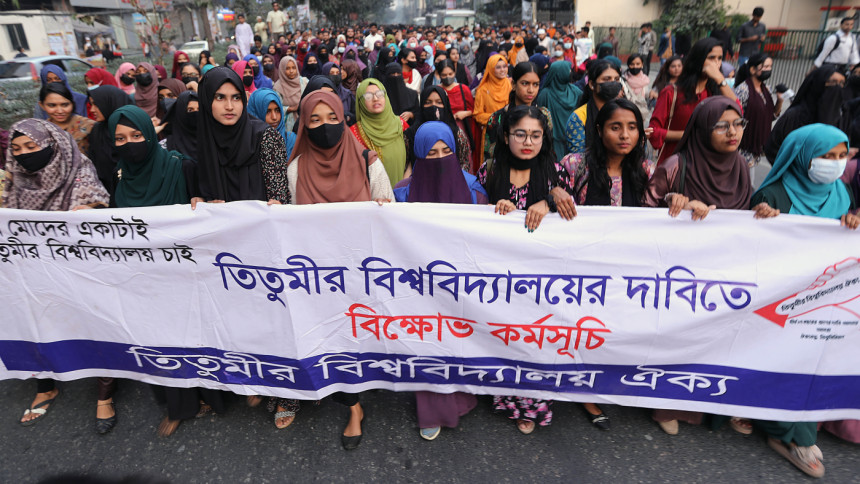
Despite having 171 universities, higher education in Bangladesh faces several challenges as the quality of education in many of these institutions remains substandard. Though public universities are subsidised, they fail to meet international academic standards, affecting their global rankings and the employability of their graduates. Many private universities, too, have questionable educational standards, although some offer innovative programmes. It is perceived that some private universities “sell” degrees rather than provide quality education. There is a significant mismatch between the academic outputs of universities and the actual demands of the labour market. As a result, many graduates fail to secure employment that matches their qualifications. The Labour Force Survey (LFS) 2022 indicates that the unemployment rate is highest among those with tertiary education; it is 12 percent compared to 8.78 percent and 2.82 percent among those with higher secondary and secondary education, respectively.
While this is the state of education quality, the students of Government Titumir College are demanding an upgrade of their institution to the university status. For several days, they protested and blocked roads in the capital city pressing their demands, which caused public suffering. The education adviser was adamant that he would not take any hasty decision under pressure. He also mentioned that half of the public universities in Bangladesh have been established during the past seven years, although it takes years to set up a university.
Under the circumstances, the students’ desire to convert a college into a university raises a critical question: will such a move improve the quality of higher education, or will it be a mere cosmetic change that risks deterioration of academic standards further?
Merely converting colleges that lack high education quality into universities will not resolve the fundamental issues facing the education sector. Changing the status of a college to a university does not automatically elevate its academic standing or enhance the prospects of its graduates to obtain jobs. Some of the world’s most prestigious tertiary education institutions still have the terms “college” and even “school” in their names, and that does not diminish their reputation. In fact, many of these colleges and schools are world leaders in education and research. In the US, graduates of many liberal arts colleges are sought after by leading companies and graduate programmes because of the colleges’ academic excellence and high reputation. Neither the students nor the recruiters have any qualms about the term “college.”




